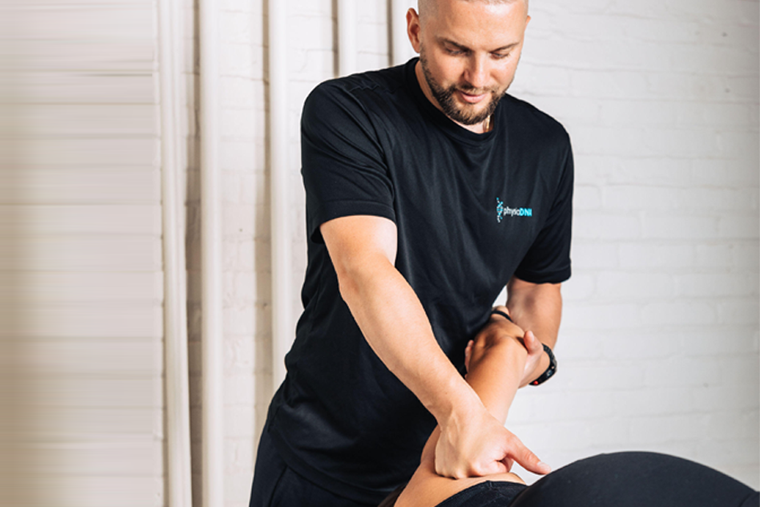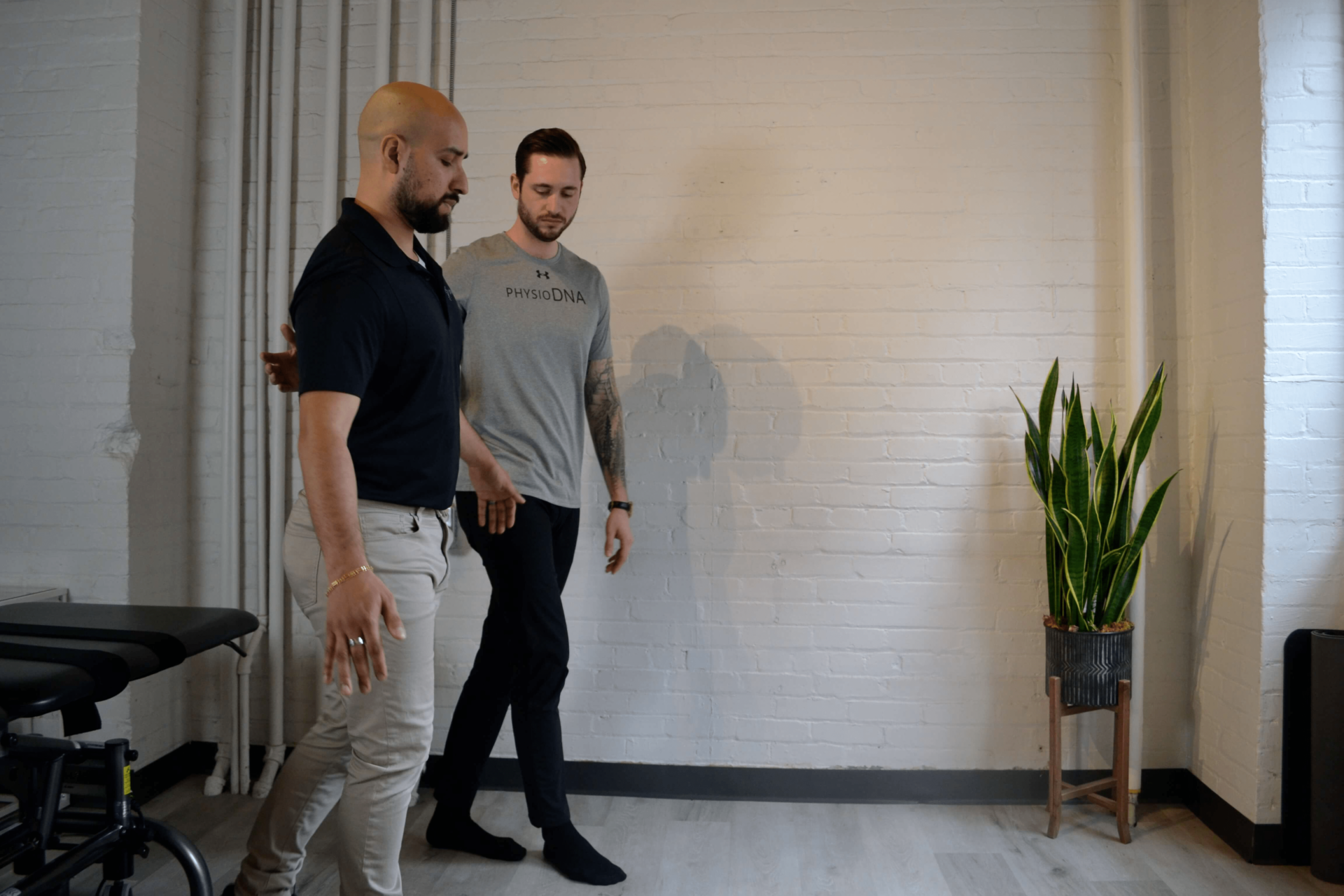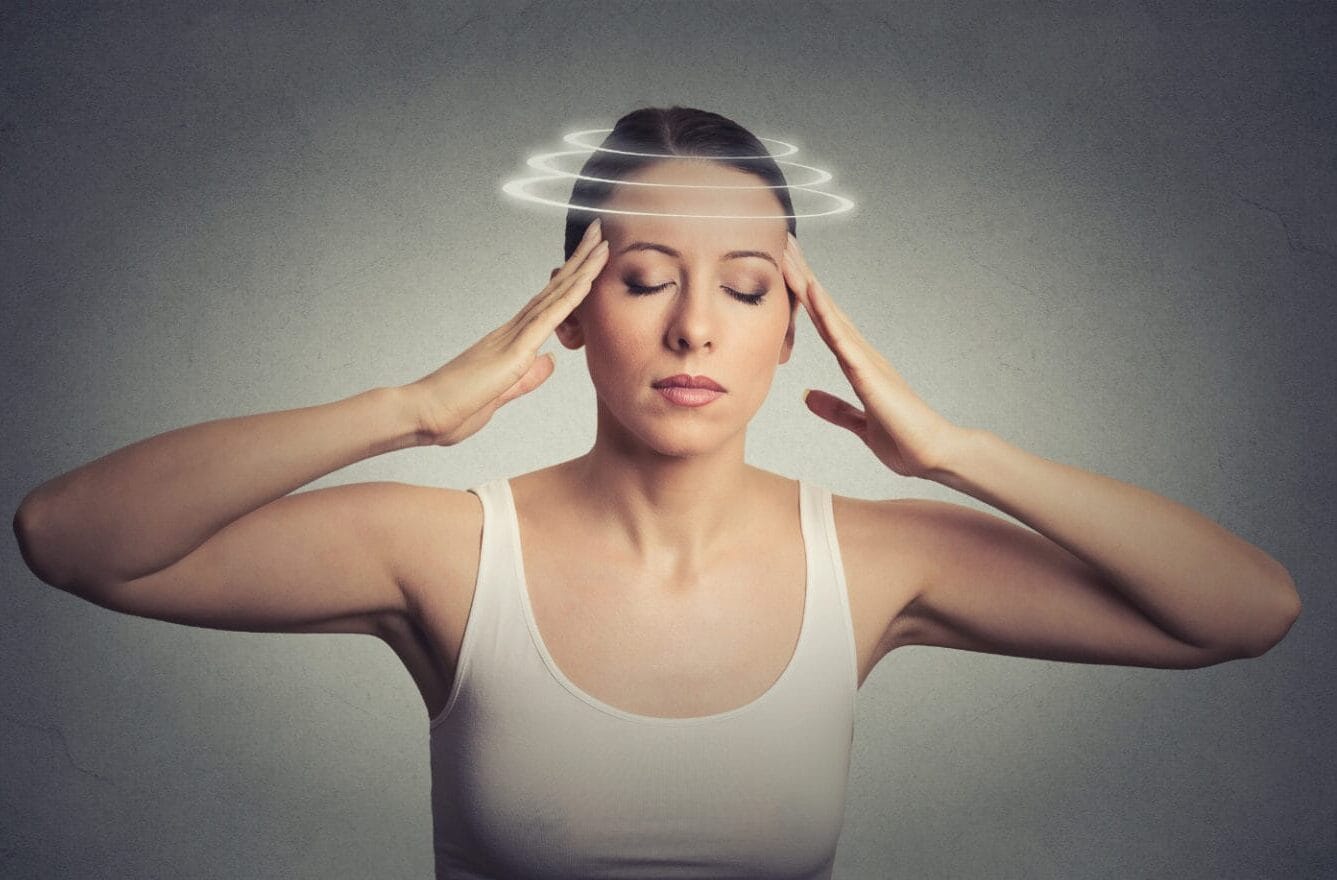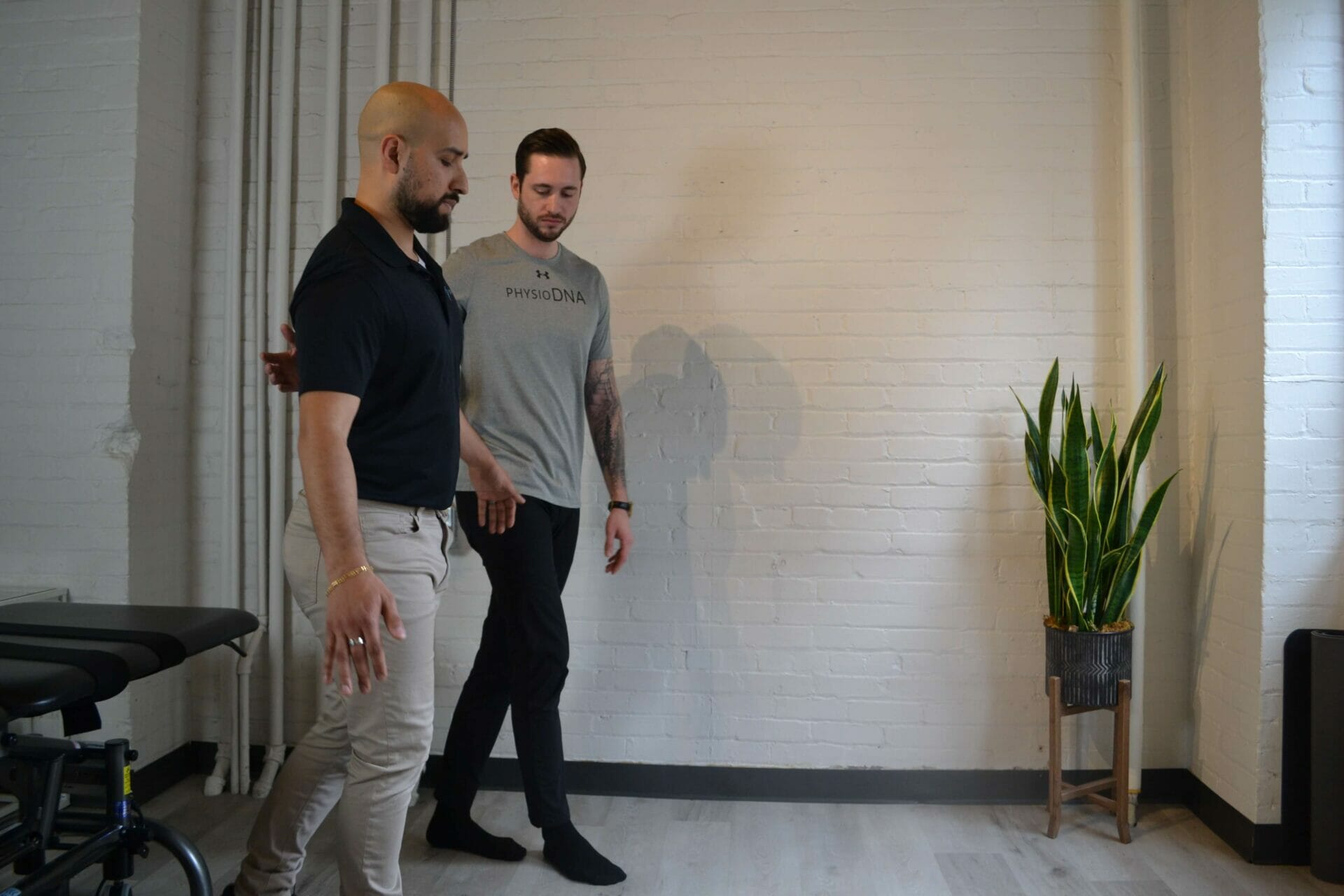
Why Vestibular Rehabilitation
Post-concussion and vestibular symptoms can widely vary and be extremely frustrating, disrupting your daily life. Our trained vestibular therapists at PhysioDNA understand the challenges following concussions and vestibular conditions and want to help you recover effectively to get back to your daily activities and the things you love. We will tailor your treatment program to address your unique needs.
Vestibular disorders are a range of conditions which include symptoms of balance problems, dizziness, vertigo, nausea, and/or vomiting. They may result from viral infections, head injury, motor vehicle accidents, aging, or may occur spontaneously. The vestibular system is located in your inner ear and plays a vital role in balance and spatial awareness. Concussions, which are considered a mild traumatic brain injury, may affect the vestibular system. It may cause symptoms such as headaches, dizziness, concentration and memory problems, balance impairments, light and noise sensitivity, fatigue, and sleep difficulties.
Vestibular physiotherapy uses certain maneuvers and exercises to correct dysfunctions in the inner ear and retrain the brain to work more effectively, with a goal of improving balance and reducing dizziness. Vestibular repositioning maneuvers are especially effective for benign paroxysmal positional vertigo (BPPV) – a common vestibular disorder.
What does concussion and vestibular therapy at PhysioDNA look like?
- Comprehensive assessment: We will assess your symptoms, balance, coordination, as well as conduct a musculoskeletal assessment to determine the potential contributors to your symptoms.
- Vestibular exercises: Specific exercises designed to improve your balance, gaze stability, visual tracking, and spatial awareness.
- Repositioning maneuvers: Specialized techniques to help dislodge and mobilize small crystals in your inner ear that affect your balance and perception of dizziness to reset your vestibular system.
- Cervical spine evaluation and treatment: Neck dysfunction may be caused by a whiplash injury and increased neck tension can affect your vestibular system, contributing to your symptoms.
- Education and guidance: We will provide you with information about concussion recovery and strategies to manage your symptoms effectively.
How can this therapy help you?
- Reduced dizziness and vertigo
- Improved balance and coordination
- Enhanced cognitive function
- Faster overall concussion recovery
- Reduced risk of long-term post-concussion syndrome
Contact us today to learn how one of our trained vestibular and concussion experts can help you get back to your normal activities.
What to Expect from Your Vestibular Rehabilitation Therapy Experience
Knowing if Vestibular Rehab is Right for you
Vestibular rehabilitation is a great choice for anyone dealing with vestibular disorders, no matter their age. It’s especially useful for people whose symptoms disrupt their daily life or haven’t improved with other treatments. How effective the rehab is can depend on various factors, including the individual’s specific condition, the root cause of their symptoms, and how dedicated they are to the therapy. While many people see noticeable improvements with regular treatment, the time it takes to see results can vary. Some might notice changes in just a few weeks, whereas others may need several months to see significant progress. Staying committed to the therapy and sticking to the prescribed exercises is key to getting the best outcomes.
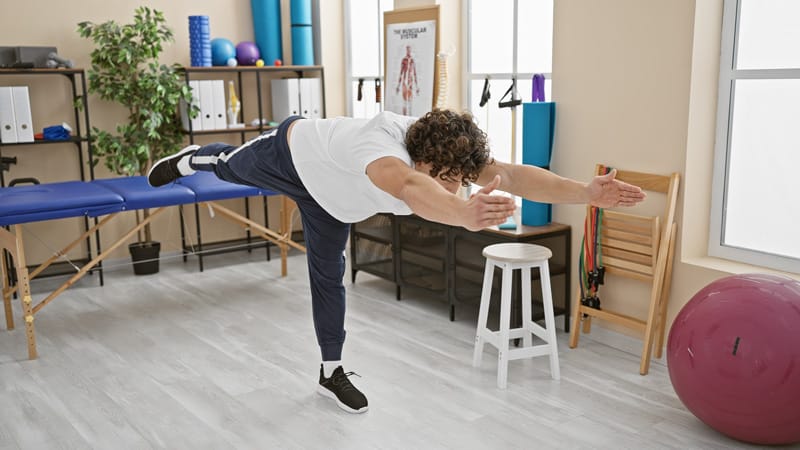
Addressing Different Symptoms
Vestibular therapy focuses mainly on treating dizziness and balance problems. If you’re also dealing with related issues like trouble concentrating, memory problems, headaches, or sleep disturbances, your therapist will evaluate how these symptoms might be linked to your vestibular condition and they’ll adjust the therapy to address these interconnected issues. The goal is to improve overall brain function and ease the associated symptoms. It’s important to note that this therapy isn’t just for balance problems caused by concussions; it can be effective for a variety of balance disorders.
Comfort During Therapy
The goal of therapy is to help, not to cause pain, although you might experience some discomfort during certain exercises or maneuvers. If you find any activity too uncomfortable, let your therapist know right away. They can make adjustments to the treatment to better fit your needs. Since exercises are tailored to your unique symptoms and balance issues, your therapist can also modify any exercise that feels ineffective or overly challenging to ensure it’s both effective and manageable for you.
Lifestyle Adjustments & Treatment Outside the Clinic
Lifestyle changes might be necessary to prevent worsening your symptoms. Your therapist will give you specific advice on which activities you should avoid or adjust based on your personal assessment. After the initial evaluation, you might need occasional follow-up sessions to track your progress. Your therapist will let you know if any additional treatment is needed depending on how you’re responding to the therapy.
If you can’t make it to therapy sessions regularly, your therapist will suggest exercises and strategies for you to use at home to keep making progress. Unlike general physical therapy, which often covers a wide range of issues like strength and flexibility, vestibular therapy is specifically aimed at improving the health of your vestibular system with targeted exercises and techniques that can be adapted to various settings.
Tracking Progress & Symptoms
Tracking your progress is a key part of vestibular rehab. Your therapist will keep an eye on how your symptoms change using specific tests and by gathering feedback on your daily experiences to gauge how well you’re improving. Additionally, staying on top of a balanced diet and proper hydration is important for overall health and recovery. Your therapist may give you advice on how these factors could affect your symptoms.
If your symptoms return after therapy, let your therapist know so they can figure out the cause and adjust your treatment plan accordingly. If you experience severe pain, worsening symptoms, or no improvement, your therapist will assess whether a different approach or even stopping therapy might be necessary.
Related Blogs
FAQs
-
How does physical rehabilitation differ from other forms of therapy?
Physical rehabilitation is the field of medicine trained to restore and improve physical abilities, especially after an injury, surgery or illness that has affected movement, mobility and strength. It usually entails engaging in some exercises, manipulation, and use of machines or apparatus to solve the problems of movement and bodily constraints.
Other therapies, such as occupational therapy and speech therapy, are different. Occupational therapy helps the patient restore their ability to perform activities of daily living. In contrast, speech therapy works on a patient’s communicative and swallowing skills. Physical rehabilitation generally addresses more of what happens inside the body, in this case, working with various elements such as muscles and joints and coordination. Therefore, it is different from the secondary rehabilitative modalities.
-
How is a physical rehabilitation program customized for individual needs?
Every physical rehabilitation program is prepared after a detailed study of the patient’s health history, the particular injury or condition, the general abilities of the patient, and their objectives. The therapists design exercises and treatment plans in cohesion with the patient’s mobility, strength, functional needs and capabilities. The program may also be modified in the course of treatment as the patient is rehabilitated so that it continues to respond to the needs of the patients in rehabilitation.
-
How long does a typical physical rehabilitation program take to see results?
The length of a physical rehabilitation program is always contingent upon the specific condition of the patient, including the gravity of the injury and the goals in question. As a rule of thumb, most of the patients are likely to see positive changes in their condition after undergoing regular treatment for about 4 to 6 weeks. Some may experience progress sooner, while others may take quite a while, as long as 12 weeks or thereabouts, before noticing permanent changes are put into practice. Speaking with your therapist on a regular basis is crucial when it comes to making sure that progress is being made.
-
Can physical rehabilitation help in managing chronic pain?
Undoubtedly, physical rehabilitation assists in the management of chronic pain by enhancing mobility, muscle strength, and flexibility. Physical rehabilitation can be used to decrease pain, facilitate healing and prevent further injuries through specific exercises, manual therapy, and pain management techniques. Therapists assist individuals in identifying the sources of pain to help restore normal function, relieve dependence on drugs, and enhance the quality of life.
-
What equipment or techniques are commonly used in physical rehabilitation?
When it comes to physical rehabilitation, some of the common equipment used are resistance bands, balance boards, stationary cycles, and more weights for the enhancement of muscular strength and range of motion. Often, rehabilitation regimens include therapeutic exercises, physical modalities such as manual therapy (massage, stretching), and thermal or electro-therapeutic treatments. Depending on the level of the patient’s condition, restoring the function and relieving the pain may also employ newer technologies such as biofeedback, hydrotherapy, or robotic rehabilitation.
-
Is physical rehabilitation suitable for all age groups, including seniors and children?
Of course, physical rehabilitation is appropriate for people of different ages, including older adults and children. Individualized treatment plans are designed with the person’s age, condition, and physical ability taken into consideration. For older adults, rehabilitation improves mobility, strength, and overall quality of life. Pediatric rehabilitation, on the other hand, helps children who have suffered from trauma or have certain congenital problems and disabled relations. Therapists make sure that any exercises and therapies will promote recovery and well-being within a specific age range without compromising effectiveness or safety.
-
Who is a good candidate for vestibular physiotherapy?
Usually, the patients who get referred for vestibular rehabilitation therapy are those who are suffering from or have suffered from vertigo, dizziness, Meniere’s disease or benign paroxysmal positional vertigo (BPPV). The patient may have gotten a referral from their doctor or self-diagnosed themselves,
-
How long does it take to see improvements with vestibular physiotherapy?
The duration for which vestibular physiotherapy must be pursued to notice some improvement greatly depends on the patient and the extent of their vestibular illness. Some people may notice effects in a few sessions or a few weeks, while for other patients, this may take months. This may be dependent on the severity and duration of symptoms.
-
What should I expect during a vestibular rehabilitation session?
In the case of vestibular physiotherapy, some peculiar movements would be prescribed, which would help control or moderate any symptoms presented in the respective individual or in connection with the disease present in that individual. Among these exercises, eye-tracking activity may include moving an eye forward across a moving object to enhance the visual timing and also to reduce dizziness.
-
Does insurance cover vestibular rehabilitation?
Vestibular physiotherapy is a type of physiotherapy treatment and, as such can be billed as a physiotherapy session as it is conducted by a registered physiotherapist. The registered physiotherapist specializes in treating vestibular cases and the techniques used to provide treatment (such as Epley’s maneuver). Most extended health plans include coverage for physiotherapy visits. Every insurance plan is unique, so it is advisable to contact your respective insurance plan to confirm your specific coverage.
-
How does vestibular physiotherapy differ from other types of physiotherapy?
General physiotherapy is an excellent choice for most people since it can help with a variety of difficulties, such as injuries, chronic pain, muscle weakness, and mobility impairments, as well as conditions often handled by rehabilitation and vestibular rehabilitation specialists.
Vestibular Physiotherapy aims to alleviate symptoms of dizziness, vertigo, and balance problems, which are frequently caused by inner ear issues. It may also help to improve posture and gait. Registered Physiotherapists are specially trained to be Vestibular certified. Make sure you specify that you are looking for this type of treatment when you book an initial assessment.
-
What home exercises can I do to complement my vestibular rehabilitation?
Attempt balancing exercises to keep up with your vestibular physiotherapy, such as standing on one leg, walking heel-to-toe, or utilizing a balance board. Eye movement activities, such as gaze stability, can also be useful for vestibular rehabilitation. Before starting a generic home exercise program, consult a professional to ensure the exercises are safe and beneficial to perform.

